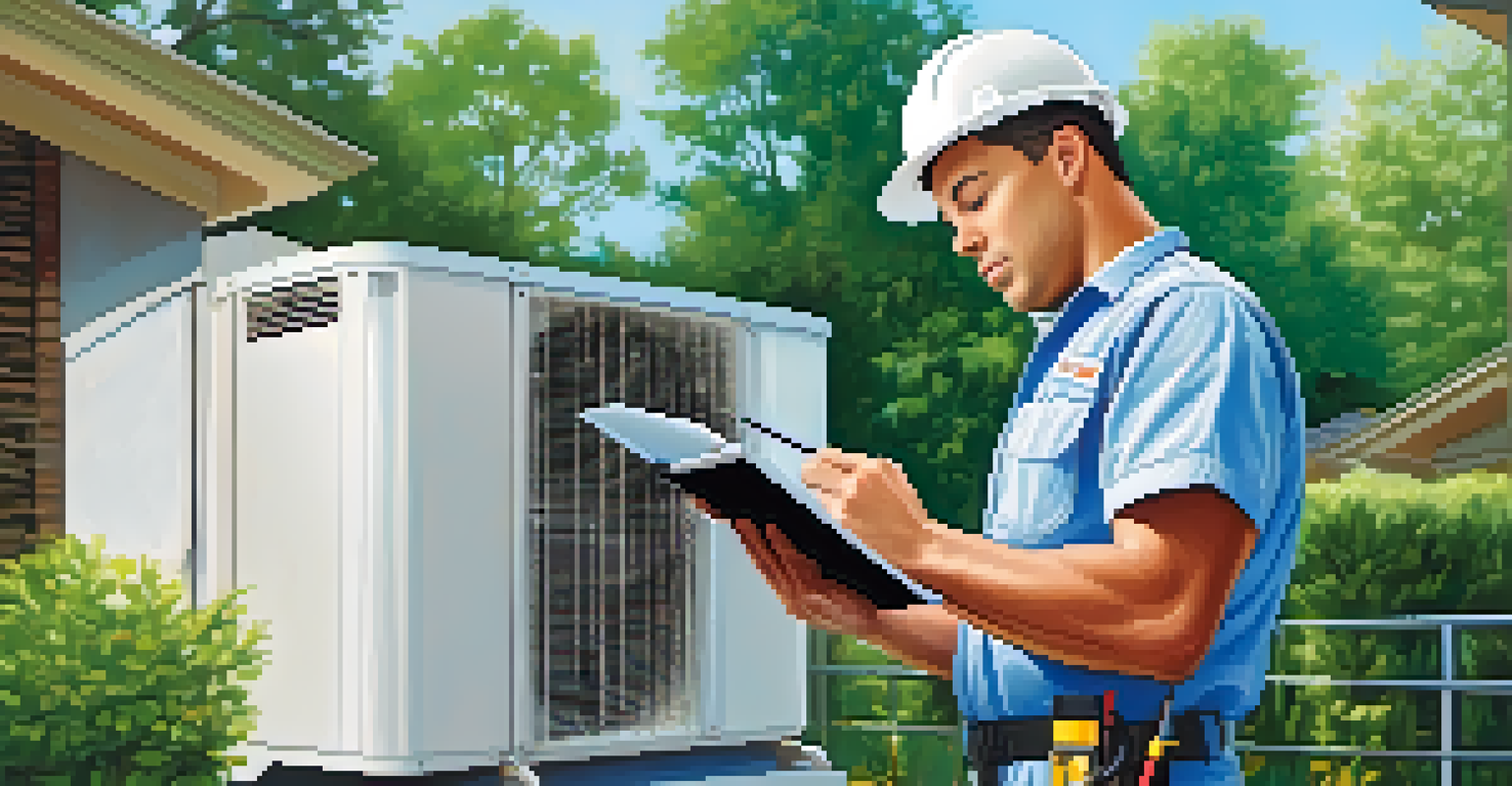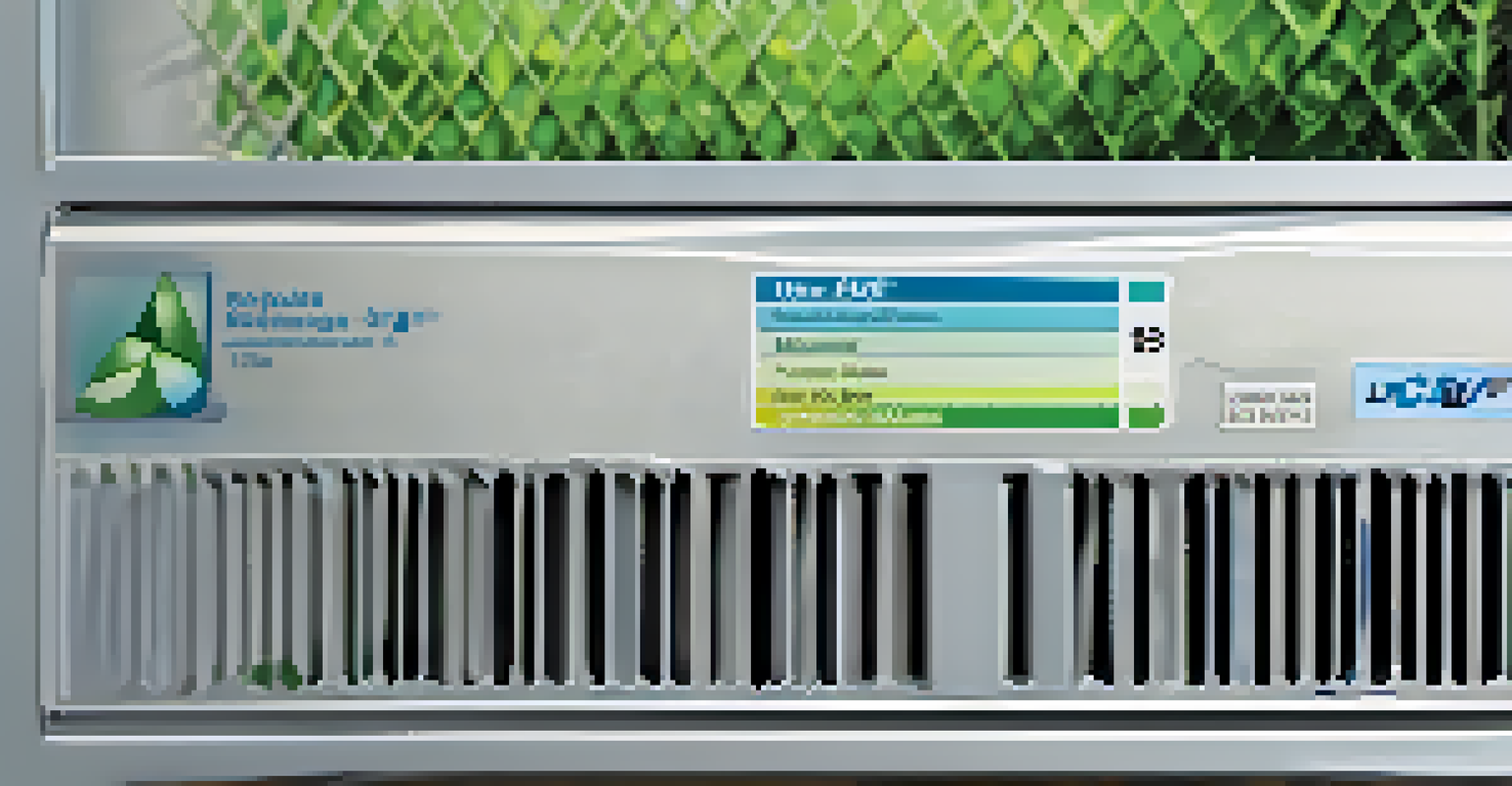Analyzing the ROI of Upgrading Home Heating and Cooling

Understanding HVAC System Upgrades and Their Importance
An HVAC system is essential for maintaining a comfortable home environment. It includes heating, ventilation, and air conditioning, all working together to regulate temperature and air quality. Upgrading these systems can significantly enhance your home's efficiency and comfort levels.
Energy efficiency is not just a goal; it's a necessity for sustainable living.
Many homeowners overlook the importance of their HVAC systems until issues arise. However, understanding the benefits of a well-functioning system can motivate you to consider an upgrade. With modern technology, newer units are designed to operate more efficiently, leading to reduced energy consumption.
Moreover, a reliable HVAC system can contribute to better indoor air quality, which is crucial for your health. Upgrading can mean fewer allergens and pollutants in your home, making it a safer and more pleasant place to live.
Assessing Energy Efficiency Ratings of HVAC Systems
Energy efficiency ratings, like SEER (Seasonal Energy Efficiency Ratio) for air conditioners and AFUE (Annual Fuel Utilization Efficiency) for furnaces, are key indicators of a system's performance. Higher ratings mean better energy use, which translates to lower utility bills. When upgrading, it’s wise to choose units with higher efficiency ratings.

For instance, while a traditional unit may have a SEER rating of 10, newer models can reach as high as 20. This significant difference means that upgraded systems can save you a substantial amount on energy costs over time. Understanding these ratings can help you make informed decisions.
HVAC Upgrades Enhance Home Comfort
Upgrading your HVAC system significantly improves energy efficiency and indoor air quality, leading to a more comfortable living environment.
Additionally, many utility companies offer rebates or incentives for upgrading to energy-efficient models. This can lessen your initial investment and improve the overall return on investment (ROI) of the upgrade.
Calculating the Cost of Upgrading HVAC Systems
When considering an upgrade, it's essential to evaluate the total costs involved. This includes not just the purchase price of the new unit, but also installation fees, potential modifications to your home, and any necessary permits. A detailed cost analysis will give you a clearer picture of your investment.
Investing in a new HVAC system is investing in your home's future and comfort.
For example, if a new HVAC system costs $5,000, and installation adds another $2,000, your total investment is $7,000. However, this is an investment that could save you hundreds annually on energy bills. Thus, understanding the upfront costs is only part of the equation.
Moreover, it's important to factor in the lifespan of the new equipment. Many modern systems come with warranties that can last up to 10 years or more, providing peace of mind and further protecting your investment.
Evaluating Long-Term Savings on Energy Bills
One of the most significant benefits of upgrading your HVAC system is the potential for long-term savings on energy bills. Newer, more efficient systems consume less energy, which means you pay less each month. Over time, these savings can add up and offset the initial costs of the upgrade.
For example, if an upgraded system saves you $50 per month, that's $600 a year. In just a few years, this could cover a significant part of your investment. Understanding these savings helps illustrate the ROI of making such an upgrade.
Long-Term Savings from Energy Efficiency
Newer HVAC systems save homeowners money on energy bills over time, making the initial investment worthwhile.
Additionally, with rising energy costs, investing in an efficient HVAC system can act as a safeguard against future hikes in utility bills. This proactive approach not only enhances your home's comfort but also provides financial security.
The Impact on Home Value and Marketability
Upgrading your HVAC system can also have a positive impact on your home's market value. Homebuyers often look for properties with updated, energy-efficient systems, which can make your home more attractive on the market. This means that your initial investment can yield a return when you decide to sell.
In fact, studies have shown that homes with energy-efficient upgrades can sell for 5-10% more than comparable homes without them. This added value can significantly enhance your ROI in the long run, making it a smart financial decision.
Moreover, a modern HVAC system can reduce the likelihood of repairs and maintenance issues, which can be a selling point for potential buyers. They appreciate the peace of mind that comes with knowing they won't have to deal with costly repairs right after moving in.
Exploring Environmental Benefits of HVAC Upgrades
Upgrading your HVAC system isn't just good for your wallet; it's also beneficial for the environment. More efficient systems consume less energy, which means lower greenhouse gas emissions. This contributes to a healthier planet, which is increasingly important to many homeowners.
For instance, by switching to an energy-efficient model, you might reduce your carbon footprint by several tons over the system's lifespan. This not only helps combat climate change but also aligns with the values of eco-conscious consumers.
Increased Home Value with Upgrades
Investing in an energy-efficient HVAC system can boost your home's market value and appeal to potential buyers.
Furthermore, many modern HVAC systems use refrigerants that have lower global warming potential, making them a better choice for the environment. Understanding these benefits can help you feel good about your investment, knowing you’re making a positive impact.
Choosing the Right HVAC System for Your Home
Selecting the right HVAC system involves considering several factors, including the size of your home, local climate, and your specific heating and cooling needs. It's crucial to have a system that is properly sized for your space, as an oversized or undersized unit can lead to inefficiencies.
Consulting with a licensed HVAC professional can help you navigate these choices. They can assess your home and recommend systems that best fit your requirements, ensuring optimal performance and efficiency. This personalized approach is vital in achieving the best ROI.

Additionally, consider features such as smart thermostats and zoning capabilities, which can enhance comfort and save energy. These modern conveniences can make daily life easier while further improving the efficiency of your HVAC system.